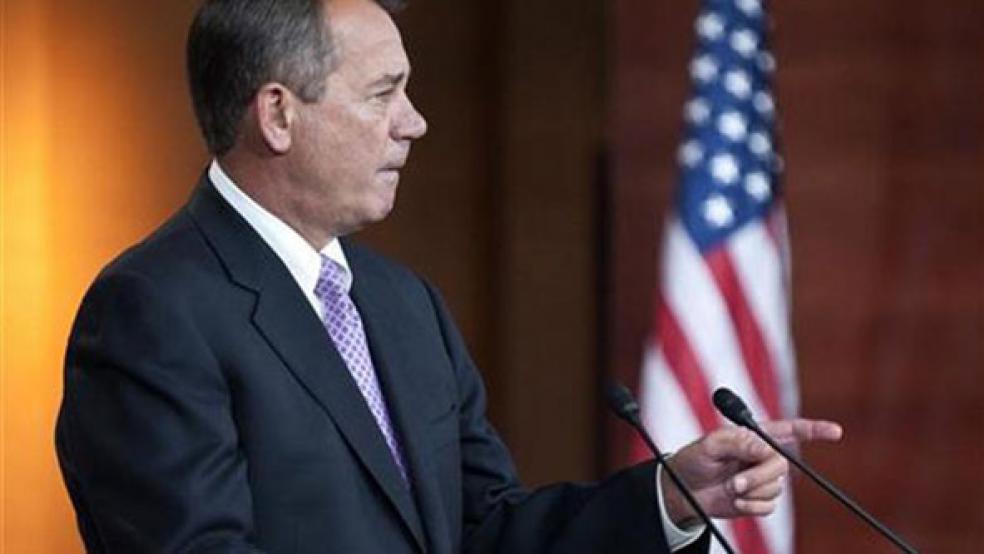Congress is rushing to pass a $150 billion economic stimulus package before the end of the week that would extend a Social Security payroll-tax and unemployment benefits through the end of the year and avert a scheduled deep cut in the reimbursement fees for doctors who treat elderly Medicare patients.
The bipartisan package was hammered out by a Senate and House negotiating team late Wednesday night and early Thursday in a rare display of political unanimity. That followed a crucial decision by House Speaker John Boehner, R-Ohio, to finance the $100 billion cost of the tax cut extension by adding it to the deficit rather than trying to offset it with cuts in government programs or by raising other revenues.
Republicans had long demanded offsetting cuts to underwrite the cost of the extended tax break and other benefits, while Democrats and the White House insisted the package had to be financed with a combination of spending cuts and revenue raisers. With a deadline looming, neither party was willing to allow a stalemate to trigger a tax increases for 160 million Americans in an election year.
Back in December 2010, President Obama and Congress struck a deal to extend the Bush-era tax cuts at all income levels for two years as part of a package that would also keep benefits flowing to the long-term unemployed, cut payroll taxes for all workers for a year and take other steps to bolster the economy. Last December, the president and congressional leaders agreed to a two-month extension of the tax cut and unemployment benefits, until they could negotiate an extension through the remainder of this year.
Democratic and Republican congressional leaders signed off on the final deal on Thursday, and the House and Senate are expected to vote to approve the package by week’s end, before Congress departs for an extended recess.
What the Agreement Will Do:
Extend for another 10 months a two-percentage-point reduction in the Social Security payroll tax for 160 million workers. The rate was first reduced by Congress and the president in 2010 from 6.2 percent to 4.2 percent to help boost the economy. The partial tax holiday will save the average family about $10,000 a year. Revenue lost to the Social Security trust fund would be fully replaced with money from the general fund of the Treasury.
Continue to provide $300 a week in unemployment benefits through the end of the year, but gradually reduce jobless benefits to a maximum of 73 weeks from the current 99 weeks, depending on individual states’ current unemployment rates. Just 18 states are currently getting the full maximum of 99 weeks.
Approve a “Doc Fix” to avert a scheduled 27 percent reduction in Medicare reimbursement rates for physicians through the remainder of the year. Congress has done this before to avoid a situation in which physicians refuse to treat elderly Medicare patients because of woefully inadequate reimbursements.
How Congress Will Pay for It:
The $100 billion cost of extending the payroll tax cut will be added to the federal deficit. Congress can do this by declaring an “emergency” to get around a federal “pay as you go” law that would otherwise automatically impose offsetting cuts in discretionary spending.
The remaining $50 billion of the cost for extended jobless benefits and the “Doc Fix” would be offset by auctioning off $22 billion worth of the government-controlled broadband spectrum to telecommunications companies, requiring new federal workers to contribute more to their pension plans, and cutting $5 billion from a fund created under President Obama’s health care reform program to help primary care physicians prevent illness.





